make my own mind.” “That’s my own opinion.” “That’s how I think.” But social neuroscience teaches us that the human brain is a social organ, intimately connected to other brains. Learn what are the implications for your leadership.
Read MoreIn the month of February our society forces us to think about love and relationships. Valentine’s day is all about heart. Today I want to show you that leadership should also be about heart. Leading from the heart is the best way to lead businesses and organizations.
Read MoreBut what needs changing, and how to change — that is.
There are not too many people that like change. As humans, we typically hate change. We would rather stay the same than dive into the unknown. What you don't know feels scary. Even if not desirable, you feel safe in doing what is familiar. You tend to be more comfortable in environments and relationships that you are used to than in those that require a shift. This is true even if what is familiar is unhealthy or unfulfilling. Learn how to become more honest with yourself about change.
Read MoreLet me guess: You want to lose weight in 2018, or just eat healthier. Perhaps you want to spend less money or spend more time with your friends and family. Maybe you want to stop procrastinating and finally start your own business. Whatever it is, Self-improvement, or at least the desire for it, is a shared American hobby.
Estimates say more than 40% of Americans make New Year's resolutions. But for all the good intentions, only a tiny fraction keep their resolutions. University of Scranton research suggests that just 8% of people achieve their New Year's goals.
You can be included on that 8%. This blogs explains how.
Read MoreAre you ready to choose a word as your motto for 2018? Here are the reason why it can help you!
Read MoreMany people seek me because they want to change. Yet, not all of them are ready to change. Even the words you use when talking about change can have an impact on how ready you are to change and with being successful with change. Your vocabulary impacts your attitudes and actions. When it comes to change, words can make a huge difference.
Most people are not really committed to change. They commit just to try. . . And that doesn't work!
Find out what does work!
Read MoreMany times we talk about our desire to change. As the last month of the year progresses, we start taking inventory and thinking about what we need to change in the new year. We go back and forth between wanting to change and dreading the idea of change. You know deep down there are some things you really need to change, but how do you get ready to change? How can you get to that transformation that will signal you have really changed?
Unless your mind is ready to make a focused, no barrels hold, commitment to change, you are not ready. Do you know where you are in the continuum of readiness to change? December is a good month to contemplate the need for change. Keep reading to learn how to get ready.
Read MoreWe are starting the last month of the year. As the year starts unwinding to it’s end, we tend to become more contemplative of our life and work. We take inventory. We weight opportunities. We think about change. . .
Unfortunately, after many years of doing the same, making new resolutions for the new year, and failing at them, many give up on change and on themselves. If you are like them, you think about change, but have come to HATE change. . . or your failure with change. In today's post learn what works.
Read MoreIt’s the time of year in the US when we all remember to give thanks for our many blessings. It’s a good practice. Yet, it seems to me that designating only one day a year to giving thanks is not enough given the power of gratitude!
According to Cicero, "Gratitude is not only the greatest of the virtues but the parent of all others." Multiple studies have shown the correlation between gratitude and increased wellbeing not only for the individual but for all people involved. At present there is an impressive body of research showing the benefits gratitude has for the health of our brain and heart, our level of happiness, the contribution to a positive work environment, and increased productivity. Find out how you can express more gratitude.
Read MoreHave you ever tried to solve a specific problem with your team only to be bogged down in endless discussions that make everybody angry and weary and get you nowhere near a solution? You might be surprise at what is the biggest barrier to problem-solving!
Read MoreHow much do you think a smile would cost? What value would you assign to a smile given to you? How would you calculate the residual effect of seeing a smile, or giving a smile? What if your life depended on smiling?
This world is full of people who run around full of negativity– frustration, anger, disappointment. As their frustration piles up, they become contagious spreading it to other people at work, at home, or on the streets, making many around them miserable too. Frowns abound, smiles are scarcer.
Few people would argue that smiling is bad for you, but new research is showing just how many ways smiling is beneficial to your career and well-being. Here is a short rundown.
Read MoreOur story in Costa Maya, Mexico will show you the best way to increase your bottom line. See what you think!
Read MoreSee what my experience at the of Belize City has to do with clarity for change.
Read MoreOur assumptions play a large part in how we view the world and how we behave towards others, yet they are often invisible to us. Learning to identify your assumptions allows you to see the world in a new light. By identifying your assumptions you have the opportunity to build common ground and consensus.
Read MoreLeaderswho are always calling attention to themselves can be dangerous. They feel they’re the only ones that can do things right. Any time the achievements of others are mentioned, they have to brag about theirs. They make a lot of noise and many times don’t show as much action. As a result, they create a toxic environment around them. Even if they are bright, people fear them, and keep their distance.
Read More















